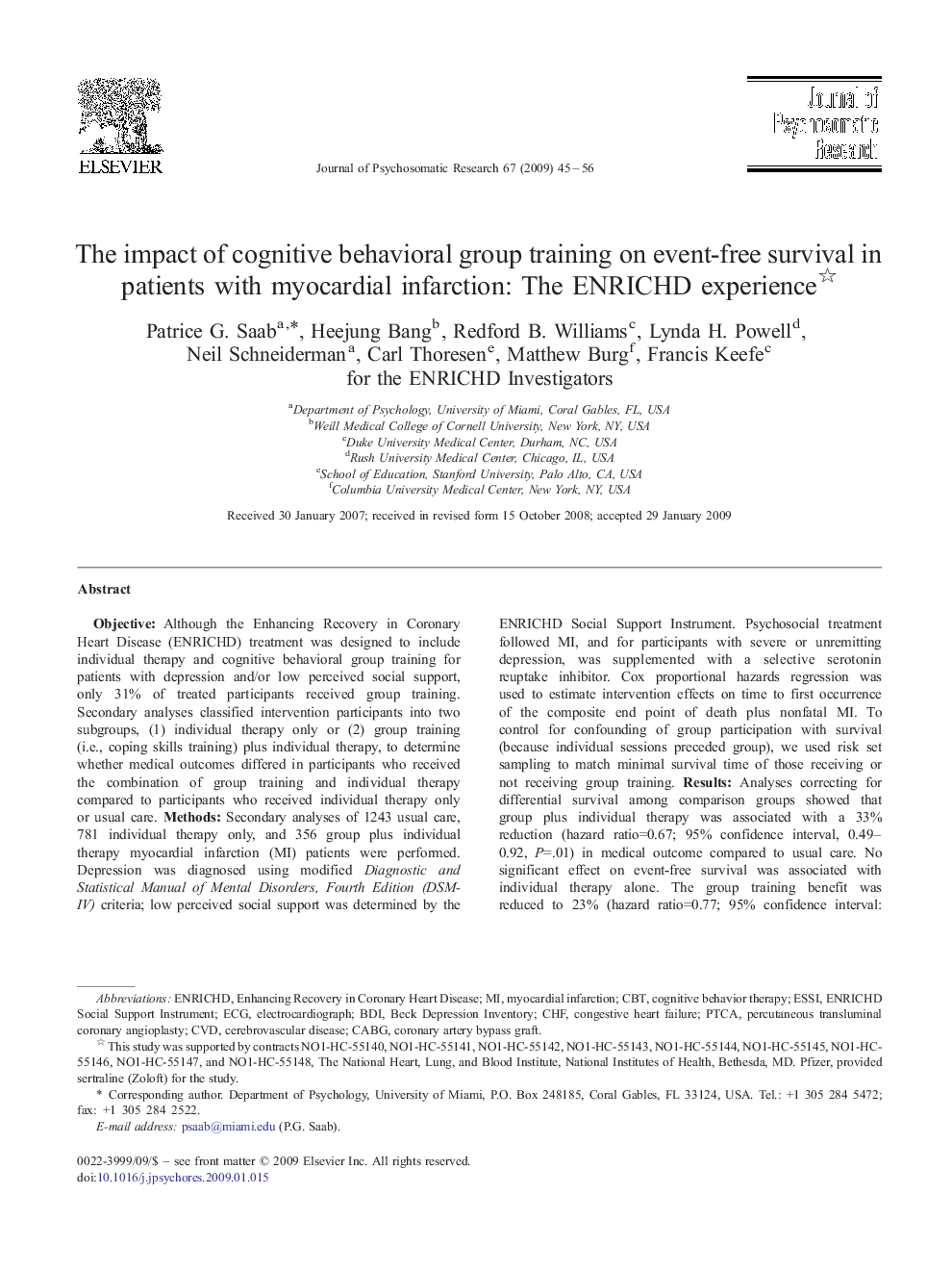| کد مقاله | کد نشریه | سال انتشار | مقاله انگلیسی | نسخه تمام متن |
|---|---|---|---|---|
| 949901 | 926794 | 2009 | 12 صفحه PDF | دانلود رایگان |

ObjectiveAlthough the Enhancing Recovery in Coronary Heart Disease (ENRICHD) treatment was designed to include individual therapy and cognitive behavioral group training for patients with depression and/or low perceived social support, only 31% of treated participants received group training. Secondary analyses classified intervention participants into two subgroups, (1) individual therapy only or (2) group training (i.e., coping skills training) plus individual therapy, to determine whether medical outcomes differed in participants who received the combination of group training and individual therapy compared to participants who received individual therapy only or usual care.MethodsSecondary analyses of 1243 usual care, 781 individual therapy only, and 356 group plus individual therapy myocardial infarction (MI) patients were performed. Depression was diagnosed using modified Diagnostic and Statistical Manual of Mental Disorders, Fourth Edition (DSM-IV) criteria; low perceived social support was determined by the ENRICHD Social Support Instrument. Psychosocial treatment followed MI, and for participants with severe or unremitting depression, was supplemented with a selective serotonin reuptake inhibitor. Cox proportional hazards regression was used to estimate intervention effects on time to first occurrence of the composite end point of death plus nonfatal MI. To control for confounding of group participation with survival (because individual sessions preceded group), we used risk set sampling to match minimal survival time of those receiving or not receiving group training.ResultsAnalyses correcting for differential survival among comparison groups showed that group plus individual therapy was associated with a 33% reduction (hazard ratio=0.67; 95% confidence interval, 0.49–0.92, P=.01) in medical outcome compared to usual care. No significant effect on event-free survival was associated with individual therapy alone. The group training benefit was reduced to 23% (hazard ratio=0.77; 95% confidence interval: 0.56–1.07, P=.11) in the multivariate-adjusted model.ConclusionsFindings suggest that adding group training to individual therapy may be associated with reduction in the composite end point. A randomized controlled trial is warranted to definitively resolve this issue.
Journal: Journal of Psychosomatic Research - Volume 67, Issue 1, July 2009, Pages 45–56